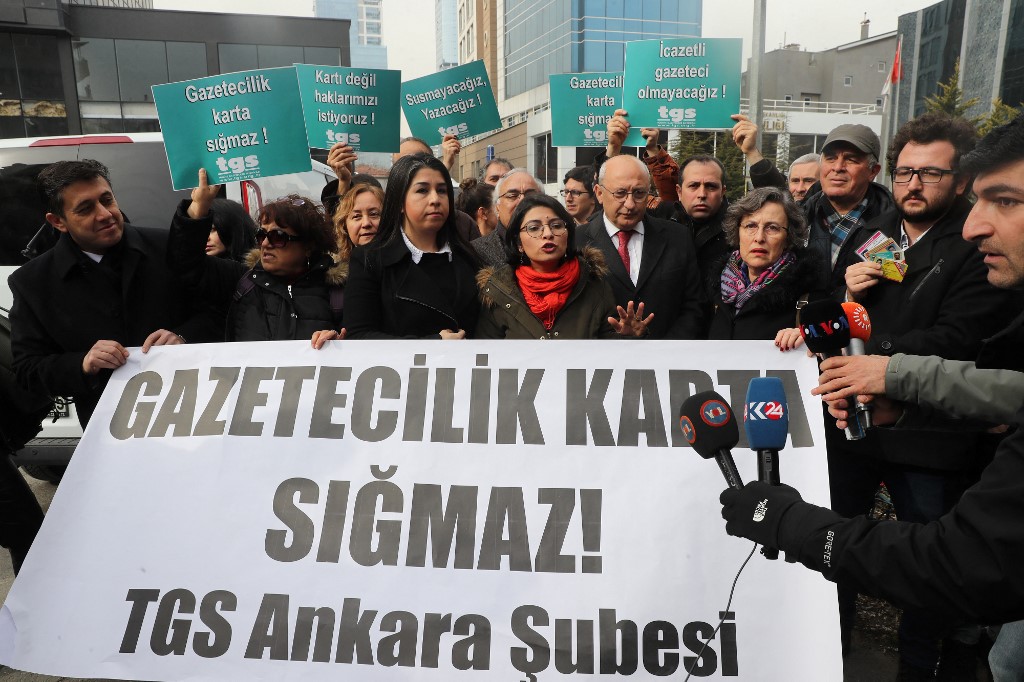A presidential decree on Friday showed that the Justice and Development Party (AKP) government’s recent changes to a 2018 press card regulation painted a similar picture to the articles suspended by the Council of State, Turkey’s highest administrative court, in early April for making press card cancellation easier.
The latest additions to the 25th article of the regulation on reasons for the cancellation of press cards included statements such as “damaging the honor of the profession by exhibiting behaviors that cast a shadow on the dignity of journalism” and “creating content that would support violence and terror or disable the fight against all kinds of organized crime.”
Eleven journalism associations, including the Contemporary Journalists’ Association (ÇGD), the Turkish Journalists Union (TGS) and the Turkish Journalists’ Association (TGC), released a joint statement against the recent changes to the regulation, describing them as a blow to press freedom in Turkey.
“They paved the way for the AKP government to easily cancel the press cards of journalists critical of the government by way of subjective and arbitrary accusations,” the group said.
In a separate statement on Friday the TGC underlined that the ruling AKP aims to create an environment in the country where it can decide who can become a journalist. “The ruling power cannot control the profession of journalism [in Turkey] by means of press cards. A press card cannot serve as a license for journalism,” they argued.
The changes to the 2018 regulation also received criticism on social media, with many Twitter users posting under the hashtag #BasınKartımaDokunma (Don’t touch my press card).
“According to these [changes], the press card of anyone who criticizes the government, writes a statement or posts a tweet against it can easily be canceled. Is it the Presidential Communications Director [Fahrettin Altun]’s or the Press Cards Commission’s job to measure journalists’ dignity?” asked Atilla Sertel, an MP from the main opposition Republican People’s Party (CHP).
Turkey’s Press Cards Commission, which is composed of journalists from a number of state-run and pro-government media outlets and newspapers, was subordinated to the presidency from the prime ministry as part of Turkey’s transition to an executive presidential system in 2018.
Another CHP lawmaker and journalist, Utku Çakırözer, described the changes to the regulation as the AKP’s way of “punishing journalism and press freedom” in Turkey by disregarding a decision by the Council of State given less than two months ago, arguing that press cards should be granted by professional organizations.
It is difficult for journalists to do their jobs without press cards in Turkey as they need them to attend certain events, follow trials and enter the Turkish Parliament.
The Turkish government increased its crackdown on critical media outlets and journalists in the aftermath of a coup attempt on July 15, 2016, following which dozens of journalists were jailed and more than 200 media outlets were closed down on the pretext of an anti-coup fight.
